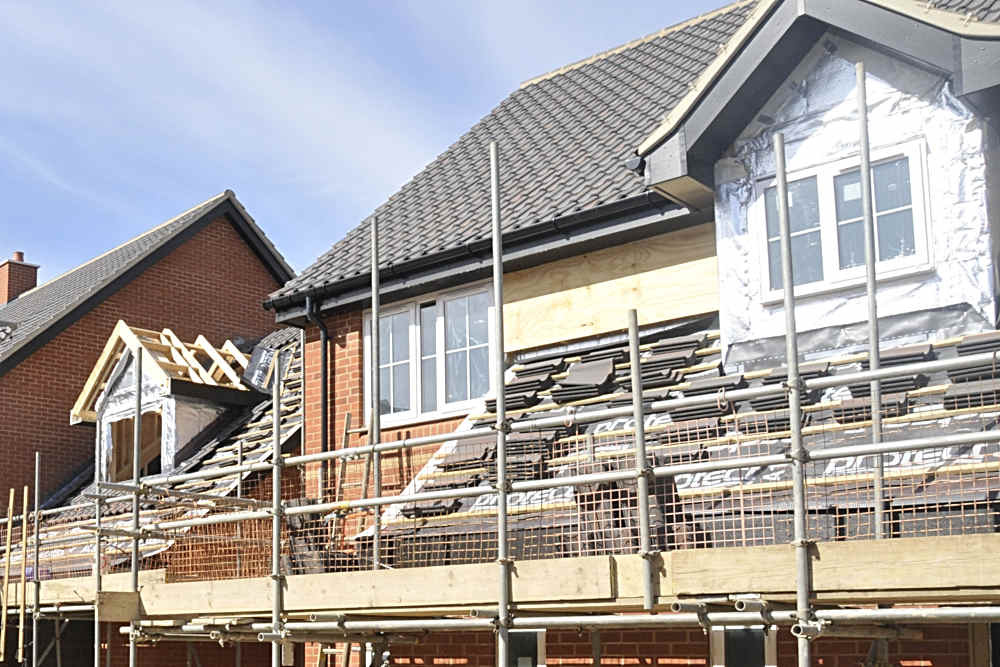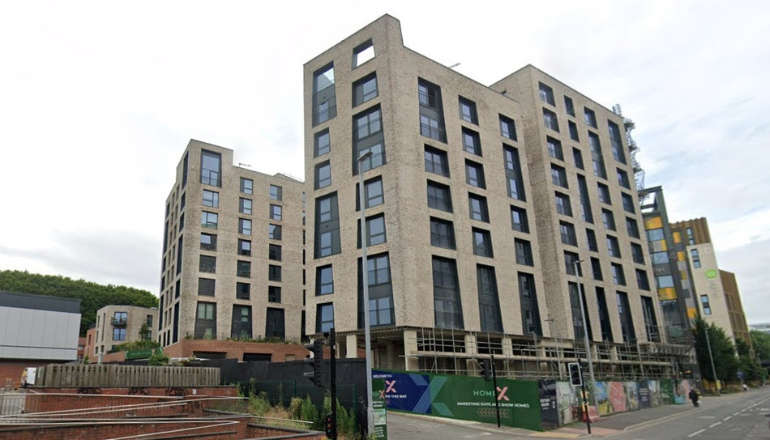
Published last week, the government’s ‘planning for the future’ White Paper lays out proposals for a major shake-up of England’s planning system – with a greater focus on streamlined local plans rather than site-by-site decisions.
The proposed changes also include a new way of calculating housing requirements, with central government dictating how many houses a local authority needs to deliver each year, starting from a national figure of 300,000 homes per year.
Figures from planning and development consultancy Lichfields show how these national changes would affect East Sussex councils.
According to Lichfields’ figures, Rother District Council would feel the greatest impact, with its housing requirement rising from 736 to 1,173 new homes per year.
Over the last three years, the council has only managed an average build of 241 new homes per year.
Lewes District Council will also see a significantly increased expectation, with its annual requirement rising from 483 homes to 800 per year.
Hastings Borough Council would only see a marginal increase, with its requirement rising from 451 to 453, while Wealden District Council facing a small decrease from 1,225 to 1,199.
Eastbourne Borough Council, however, would see a significant drop in its housing requirement, going from 675 homes to 486 per year.
Government says these new targets would be “binding”, although it has not said exactly how.
Under the proposals, councils would be expected to divide land into three categories – growth, renewal and protected.
In growth areas, outline permission would be automatically given for developments specified in a council’s local plan; renewal areas would be seen as suitable for some development; and protected areas would see development restricted.
Councils would also be able to set aside land in ‘growth’ areas for self-built and custom-built homes.
The White Paper has been described as ‘vague, damaging and ineffectual’ by The Campaign to Protect Rural England Sussex.
The charity warned the proposals ‘could hand thousands of acres of rural Sussex over to developers who will be able to build without going through the planning process’.
The proposals have come in for criticism from local councillors as well.
Cllr Sarah Osborne, a Liberal Democrat county councillor in Lewes district, said:
“The Conservatives’ plan is that new developments of up to 50 homes may no longer have to provide any affordable housing.
“This will reduce the number of affordable homes being built from its existing very low level. Given the average size of a development in our district, especially in our village communities, this will have a substantial impact on the chance for local people to buy an affordable home of their own.
“The Liberal Democrats are calling for an urgent housebuilding programme of environmentally friendly social homes for rent.
“The Liberal Democrats want to see 100,000 new social homes built every year, and for Lewes District Council to have the power to suspend the right to buy, so that we can finally start tackling the housing crisis right now.”
Similar concerns were raised by the Green Party’s Cllr Emily O’Brien, Lewes District Council’s cabinet member for planning and infrastructure.
Cllr O’Brien said:
“I welcome some aspects of the proposed reforms and agree that there are many problems with the current planning system that need fixing.
“Unfortunately, the government failed to involve a single local authority or planner and as a consequence their solutions are flawed.
“The review was meant to help our economy recover from the pandemic by encouraging house-building and the evidence is clear that the best way to do that is to invest in new and much needed affordable council homes.
“Instead, the government, at the drop of a hat, has reduced the number of affordable houses that developers have to provide, a bewildering decision with serious implications for our district and millions of people in the UK struggling to afford homes.
“I am also concerned about the increase in permitted development rights which allow developers to bypass the system. Many fear this could lead to the slums of the future.”
Eastbourne Borough Council, meanwhile, raised concerns about the impact of the proposals on its local plan process.
An EBC spokesman said:
“Having already undertaken a great deal of work and consultation on our local plan, we hope these reforms do not now make this considerable tranche of work effectively redundant.
“This is still a white paper and we will be responding to it, but changing the rules halfway through a process as involved and complex as preparing a local plan, is of considerable concern.
“We hope that through the consultation process the government will address the concerns of the communities, local authorities and the development sector.”
Other local councils have been more taciturn.
Both Rother and Wealden District Councils say they are considering the proposals and will respond in due course.
A Hastings Borough Council spokesman said:
“The council are studying the proposals set out in government’s two ongoing consultations in relation to planning.
“We are considering what these proposals mean for the current timetable for producing our new local plan and will be responding to the consultations in due course.”
On a national level the Local Government Association has called on the government to ensure the planning system remains ‘locally-led’.
These views were broadly shared by South East England Councils – a group which represents a number of the region’s local authorities.
Cllr Roy Perry, the organisation’s chairman, said:
“We will be consulting member councils across the south east but reaction so far indicates there is strong support for the Local Government Association position calling for retention of local control.
“The South East is already under tremendous planning pressure and also higher development costs and it is important that careful attention is paid to the particular issues of the region.”


 Charity Calls For Clarity On Brighton And Hove Housing Targets
Charity Calls For Clarity On Brighton And Hove Housing Targets
 Man Charged With Brighton Burglary Spree
Man Charged With Brighton Burglary Spree
 Appeal After Cannabis Plants Discovered At Brighton Fire
Appeal After Cannabis Plants Discovered At Brighton Fire
 Sainsbury's Faces Objections To Drinks Licence Application
Sainsbury's Faces Objections To Drinks Licence Application
 £5,000 Funding Boost From Newhaven Enterprise Zone For Haven Young Creatives
£5,000 Funding Boost From Newhaven Enterprise Zone For Haven Young Creatives
 London Gatwick Awards £30,000 To Good Causes In Sussex
London Gatwick Awards £30,000 To Good Causes In Sussex
 Appeal Following Serious Collision In Portslade
Appeal Following Serious Collision In Portslade
 Boy, 15, Charged With Two Counts Of Attempted Murder
Boy, 15, Charged With Two Counts Of Attempted Murder
 Meet The Southern Train Driver Magistrate Delivering Justice In Sussex
Meet The Southern Train Driver Magistrate Delivering Justice In Sussex
 Witnesses Sought Following House Fire In Eastbourne
Witnesses Sought Following House Fire In Eastbourne
Comments
Add a comment